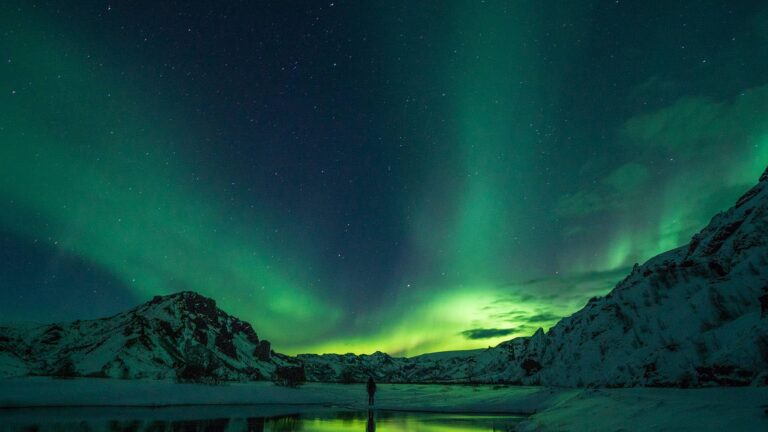Where is Iceland?

by Lucky Byfleet
Where is Iceland? Don’t feel silly. It’s not just you. One of the top searched questions about Iceland is just that.
Where is Iceland?
The easiest answer is that Iceland is in the middle of the North Atlantic Ocean. About 1816 km (1128 miles) from London to the North North West. From Quebec, Canada we are to the North East, 3673km (2282 miles) away.

We are the youngest country in Europe to be created by nature! Iceland sits on the Mid – Atlantic Ridge, which is between two tectonic plates. Over millennia, volcanoes have spewed out so much molten rock that Iceland grew to the land we know today. It is still growing, by about 2.5cm a year which is extremely fast, geologically speaking. If you want to see evidence of that go with our friends at Iceland Discover on their Golden Circle Tour, it stops at Thingvellir National park, where you can see the great stretch marks as the land is literally pulled apart! Iceland is the only place where you can dive between tectonic plates – in crystal clear glacial water no less.
Another really common question is why is Iceland called Iceland and Greenland called Greenland, when Greenland is more ice-covered? It’s okay, we wondered that too! Find the incredible answer here.

The geological activity that formed the island is still bubbling away underneath, so we frequently have earthquakes and volcanic eruptions, but we also have huge glaciers. About 11% of our land is covered by them! Because of this contrast, we are known as the land of fire and ice.
If you want a more specific answer to the question ‘where is Iceland?’ then our longitude and latitude are 64.9631° N, 19.0208° W, and our five closest neighbours are;
- Greenland.
- Faroe Islands.
- Norway.
- Sweden.
- Scotland.
But as we used to be colonised by Denmark we have a strong connection with them too, kids even have to learn Danish in elementary school.
The historical importance of Icelands location
Now that we have answered the question “where is Iceland” we can explore the history of it’s location. Iceland’s geographical position holds significant historical importance, rooted in its strategic location and unique place within the Atlantic. Situated in the North Atlantic Ocean, Iceland stands at the confluence of major maritime routes connecting Europe and North America. Its location between the continents has historically played a pivotal role in early transatlantic voyages, particularly during the age of exploration.
During the Viking Age, Iceland served as a crucial waypoint for Norse explorers on their voyages to Greenland and eventually North America. Leif Erikson, believed to have been the first European to land in North America, departed from Iceland around 1000 AD. The island’s position offered a vital stopover for these intrepid seafarers navigating the vast Atlantic.
In more modern history, Iceland’s strategic location made it a crucial site during World War II. The island became an important base for Allied forces due to its proximity to the European theater and its potential as a strategic refueling stop for aircraft and naval vessels crossing the Atlantic.
Furthermore, in the midst of the Cold War, Iceland’s geostrategic significance surged with the establishment of the US military presence at Keflavik Air Base, marking Iceland as a significant location for monitoring and defense in the North Atlantic region.
Beyond its historical significance in exploration and conflicts, Iceland’s location has had enduring importance in trade, fishing, and maritime commerce. Its positioning amidst major sea routes and proximity to both Europe and North America has made it a crucial waypoint for shipping and trade, contributing to its economic and cultural exchanges over centuries.
Iceland’s historical significance as a pivotal location in transatlantic exploration and its ongoing relevance in international affairs and trade underscore the profound importance of its unique geographic position.
Now you know where Iceland is and the historical significance of its location, come and visit us and go for a whale watching tour!
